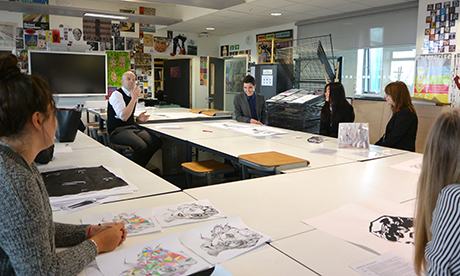Three steps to success in the sixth form

Which part of your academic life do you think will be the most challenging?
The significant jump in stages between GCSEs and post-16 courses (A Levels and BTECs etc.) may be one of the most challenging parts of your education so it’s important that you achieve as much as possible in Year 11 and in Year 12 to ensure your transition from GCSE pupil to sixth former is as smooth as it can be.
Here are some tips:
Tip 1: Study harder than you ever have before… from now
In Year 11, everyone from your teachers to your parents and your siblings to your careers advisor tells you that this is a significant “no time for messing around” year.
This isn’t about pressuring you, but every year there are students disappointed with their results who recognise (sometimes too late) that it’s mainly because they didn’t concentrate enough in class, didn’t organise their time well or ultimately, just didn’t try hard enough.
So buckle down this year and the following can help:
a) Don’t wait until March or April to produce a revision time table… create one now. Yes now. List all seven days of the week, list all times of the day and create a timetable which shows what subject you are revising… and what area of the subject.
For example, instead of just saying “Maths”, say “Maths: Trigonometry” – allowing you to keep track of exactly what you studied (or what you missed – if your schedule had to shift).
Remember to factor in breaks too – they’ll keep you sane and help you to be productive.
b) Be independent: Independence is especially encouraged from Year 12, however the earlier you can master this, the better. Do additional reading.
Find past papers and complete them.
Seek teacher feedback on extra work you have done.
Remember, as much as the staff in your school can and do support you, it is your future that you’re working towards so start taking responsibility now.
Tip 2: Find the right course and institution for you
Like choosing a university, choosing where to embark on your sixth form studies is important. Ask yourself questions like these when deciding:
Do I want a big or a small sixth form and why?
What subjects does the sixth form offer?
Is there quality teaching here?
Will I receive personal attention?
What enrichment opportunities are there to support my personal development?
Do they encourage me to think about my aspirations in the future and how that will influence what I study / what activities I participate in today?
Are there links with businesses and employers?
Am I being pushed to go to university or are other options discussed?
Will this school / college truly help me be the best I can be?
Tip 3: Find yourself through stepping beyond your comfort zone
Use the summer after Year 11 and your time in Year 12 to start something new as when you embark on something different it can increase your confidence, improve your selfawareness and help you to be a better (and more interesting) version of yourself.
Learn a new skill, participate in the Duke of Edinburgh Award, organise a volunteering opportunity, secure some more work experience, go to careers and education fairs, visit businesses and organisations to find out more about them, take up a new sport or hobby, and participate in university residential programmes.
You’ll soon have a range of experiences that can highlight what a capable, well rounded young person you are – useful for your development and to help you stand out when filling in (university and job) application forms.
This is an important and potentially life changing time of your life so don’t waste it – make the most of every opportunity you have (and create some of your own). We’re cheering for you.
Gina Visram
Gina Visram is the careers development co-ordinator at Skinners’ Academy, a specialist Enterprise academy for boys and girls, based in the Woodberry Down community of North Hackney.
Skinners’ Academy is holding its next Sixth Form Open Evening on Thursday 12 November 2015, 5pm – 7pm. Go to Skinners’ Academy and follow @skinnersacademy for more information.
